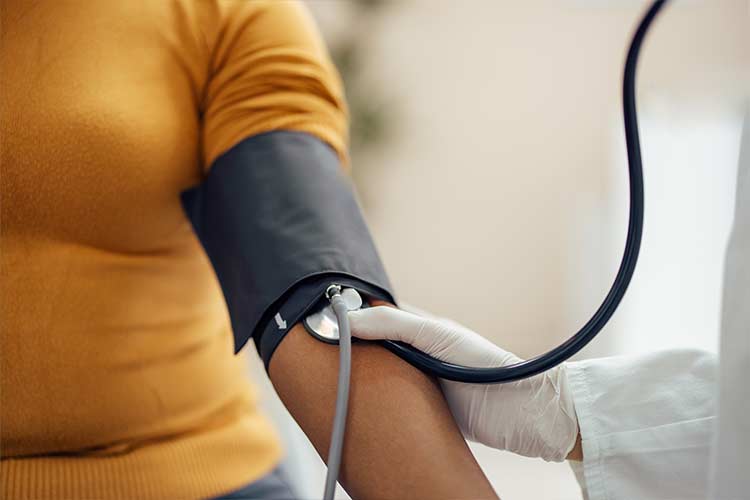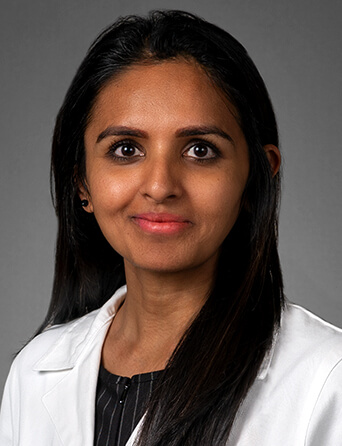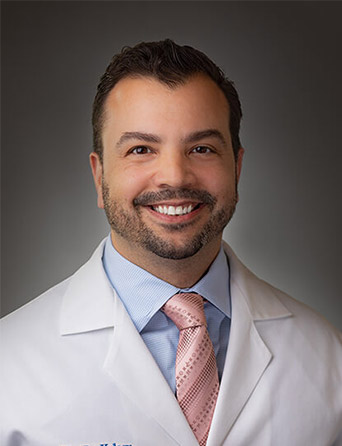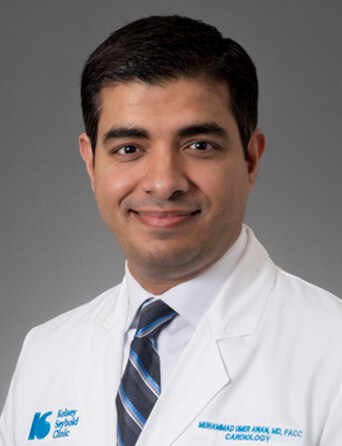Join Our eNewsletter!
Subscribe to our monthly newsletter to receive encouraging advice to help you lead a healthy lifestyle.

Women: Protect Your Heart at Every Stage of Life
Heart disease is the number one killer of women in the United States, responsible for about 1 in every 5 female deaths. The risk factors we hear about most often are eating an unhealthy diet, genetics, not being physically active, having diabetes, and being overweight or obese. Now, researchers are finding another possible risk factor for heart disease that’s specific to women: reproductive health events, including early menstruation, pregnancy, and menopause. The good news is that females can take measures at every stage of life to help prevent cardiovascular conditions in the future.
Early Menstruation
Women who began having periods before age 12 may have a 15% – 30% higher risk of developing heart disease later in life. While researchers aren’t completely sure why this is, it’s possible that being overweight and having a high BMI (body mass index) prior to starting menstruation may be the connection. Overweight adolescent girls tend to be more likely to begin having periods earlier and being overweight is also a risk factor of heart disease.
Prevention during adolescence: Let your child’s doctor know that she started having periods prior to age 12 so they can begin monitoring risk factors such as blood pressure as she enters her reproductive years. Also, encourage your child to follow a diet low in saturated and trans fats, sodium, and sugar so she can develop heart-healthy eating habits early on.
Pregnancy
There are a multitude of issues and complications that can arise during pregnancy. Some of them, including developing gestational hypertension or diabetes and having a preterm birth, can double the risk of the mother developing cardiovascular disease later in life.
A 2022 study published in the Journal of the American College of Cardiology found that women who developed gestational hypertension – high blood pressure during pregnancy – are more likely than other mothers to have a heart attack or other cardiovascular event 30 years after their first pregnancy. The same study found that those who developed preeclampsia, a condition during pregnancy that causes high blood pressure and proteins in the urine, increases the risk of stroke as early as 10 years after a woman’s first pregnancy.

Women who deliver a baby before the 37th week of pregnancy are more likely than mothers who carried to full term to develop high blood pressure later in life. In turn, they’re also more likely to develop coronary artery disease, which is associated with heart attack and stroke.
Women who develop gestational diabetes, or glucose intolerance during pregnancy, are almost three times more likely to develop heart disease and twice as likely to develop hypertension later in life than mothers without the condition.
Additionally, a woman’s heart rate is estimated to increase by 25% or more during pregnancy, which can place them at a higher risk of arrythmia (abnormal heart rhythm).
Prevention during and after pregnancy: Women who were already at risk for heart disease and hypertension prior to becoming pregnant should inform their obstetrician, who can then take measures to help prevent complications. If you experienced any of the complications mentioned during pregnancy, follow a heart-healthy diet, and consider breastfeeding your baby. A 2017 study published in the Journal of the American Heart Association found that nursing may help mothers lower their risk of heart attack and stroke. This may be because breastfeeding helps women lose weight gained during pregnancy and resets the body’s metabolism after giving birth.
Menopause
Menopausal and post-menopausal women are at increased risk of cardiovascular disease for numerous possible reasons. Most women experience menopause at around 50 years of age and the chances of developing heart disease increase significantly after age 50, so one reason for the higher risk may simply be age-related. However, it’s important to note that, according to the Centers for Disease Control and Prevention (CDC), many of the conditions and lifestyle factors that put people at a greater risk for heart disease are appearing in younger people at a higher rate than ever. On average, U.S. adults have hearts that are seven years older than they should be.
But, also of note, women who experience early menopause (prior to age 45) tend to have more cardiovascular health issues later on in life than those who experience menopause at age 50 or older. So, age may not be a reason for the higher risk as much as the typical changes that come with menopause, including abdominal weight gain, hormonal fluctuations, and higher cholesterol levels.
Another possible reason for the increased risk of heart disease during and after menopause is hormone replacement therapy (HRT). An extensive clinical trial found that HRT consisting of an estrogen-progestin pill increased the risk of heart disease, stroke, and blood clots. However, there’s also evidence that estrogen-only HRT may actually reduce a woman’s risk of developing heart disease.

Prevention before and after menopause: If you’re already at high risk for developing heart disease prior to reaching menopausal age, talk to your doctor about how menopause might affect your cardiovascular health and what you can do now to help prevent cardiovascular events later. If you’re already experiencing menopause or are post-menopausal, keep an eye on your cholesterol levels and blood pressure. Do what you can to maintain a healthy weight and follow a heart-healthy diet. You can also talk to your doctor about the pros and cons of hormone replacement therapy.








